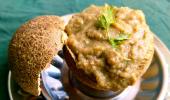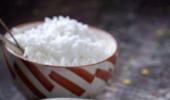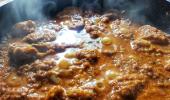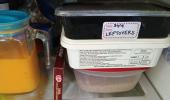Healthy cooking, healthy eating is the norm today.
But are you using the right utensils to cook your food?

Among the many guidelines recently issued by the Indian Council of Medical Research and National Institute of Nutrition is advice on the kind of vessels you should be using to cook your meals.
Do check out what they have to say about:
Earthen pots
These are the safest cookware. When using earthen pots very little oil is required.
They are environment-friendly and keep the food's nutritional content intact.
Heat can circulate well through the food in earthen pots, preserving the nutrition.
Metal cookware
We use a variety of cookware made of different materials.
Some of these materials like aluminium, iron, brass or copper can enter the food when we cook or store food in them.
Storing acidic foods like pickles, chutneys, sambar and sauces in aluminium, iron, unlined brass or copper vessels will make foods unsafe.
Stainless steel cookware
These are generally considered safe for cooking purposes if used properly.
It is widely used in kitchens around the world due to its various benefits, including its durability, resistance to corrosion and no reactivity with foods.
It doesn't leach or react with acidic or alkaline foods which means it is unlikely to impart metallic flavours or harmful substances to cooked foods.
Non-stick pans coated with polytetrafluoroethylene (PTFE or teflon)
Non-stick pans coated with teflon are a risk if they are heated to temperatures greater than 170 degrees Celsius. This might happen if an empty pan is left on the burner for a long time.
In this case, the coatings can give off irritating or poisonous fumes.
The usage and cleaning instructions should be strictly followed for non-stick cookware and they should be discarded when the coating is worn-out or damaged.
Granite stone cookware
The granite cookware available nowadays are substantially lighter than granite stone cookware that earlier generations used.
Granite stone cookware save time and energy. They also retain heat well, even after the heat source is turned off.
Unless the cookware contains teflon coating such as Perfluorooctanoic acid (PFOA), perfluorooctane sulfonate (PFOS) and polytetrafluoroethylene (PTFE), it is regarded as safe.
When using granite cookware, set the cookware's temperature to a maximum of medium high as the non-stick coating gets damaged at a high temperature; the coating will be protected at medium high heat.











 © 2025
© 2025